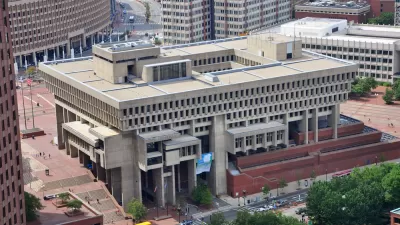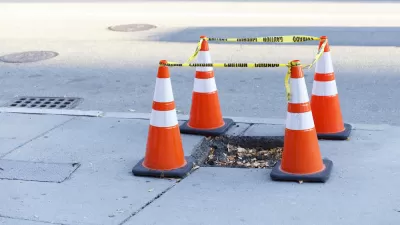The annual "City Fiscal Conditions" report by the National League of Cities delivers a warning signal about the state of the economy.

The National League of Cities (NLC) published its 2019 "City Fiscal Conditions" report yesterday. The key findings promoted on the NLC's website are less than optimistic:
- Almost two in three finance officers in large cities are predicting a recession as soon as 2020.
- Cities' revenue growth stalled in the 2018 fiscal year, but this year's continued drop indicates mounting pressures on city budgets
- The Midwest is bearing the brunt of declining conditions, the report found. Overall general fund revenues in midwestern cities dipped by 4.4% in fiscal year 2018
An article by Bill Lucia shares insights into the report's findings, including some more optimistic notes. While the pessimism about the potential of recession is coming from the largest cities, only 35-38 percent of respondents from cities with less than 100,000 residents predicted a looming recession, for instance.
Driving a lot of the conclusions and predictions reported in these findings is a softening and even, in some cases, declining revenue base for local governments.
Overall, for the cities NLC surveyed, the growth rate for general fund revenues softened to 0.59% in fiscal year 2018, from 1.25% in fiscal 2017. Expenditures grew at a rate of 1.8% among the surveyed cities in fiscal 2018, slightly lower than the 2017 rate of 2.1%.
The property tax revenue growth rate for surveyed cities was 1.8% in fiscal 2018, down from 2.6% in 2017. The income tax revenue growth rate slipped to 0.6% from 1.3%. Sales tax revenues grew by 1.9%, roughly in line with the growth rate for 2017, according to the report.
In Midwestern cities, general fund revenues declined sharply, at 4.4 percent, with declines in big cities like Chicago and Minneapolis driving the trend.
FULL STORY: Big City Finance Officials See Recession on the Horizon

Planetizen Federal Action Tracker
A weekly monitor of how Trump’s orders and actions are impacting planners and planning in America.

Congressman Proposes Bill to Rename DC Metro “Trump Train”
The Make Autorail Great Again Act would withhold federal funding to the system until the Washington Metropolitan Area Transit Authority (WMATA), rebrands as the Washington Metropolitan Authority for Greater Access (WMAGA).

The Simple Legislative Tool Transforming Vacant Downtowns
In California, Michigan and Georgia, an easy win is bringing dollars — and delight — back to city centers.

In These Cities, Most New Housing is Under 441 Square Feet
With loosened restrictions on “micro-housing,” tiny units now make up as much as 66% of newly constructed housing.

Albuquerque’s Microtransit: A Planner’s Answer to Food Access Gaps
New microtransit vans in Albuquerque aim to close food access gaps by linking low-income areas to grocery stores, cutting travel times by 30 percent and offering planners a scalable model for equity-focused transit.

This City Will Pay You to Meet Your Neighbors
A North Kansas City grant program offers up to $400 for residents to throw neighborhood block parties.
Urban Design for Planners 1: Software Tools
This six-course series explores essential urban design concepts using open source software and equips planners with the tools they need to participate fully in the urban design process.
Planning for Universal Design
Learn the tools for implementing Universal Design in planning regulations.
Smith Gee Studio
City of Charlotte
City of Camden Redevelopment Agency
City of Astoria
Transportation Research & Education Center (TREC) at Portland State University
US High Speed Rail Association
City of Camden Redevelopment Agency
Municipality of Princeton (NJ)




























